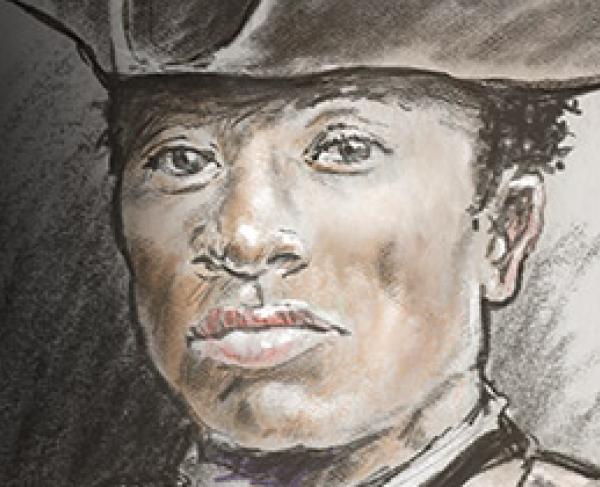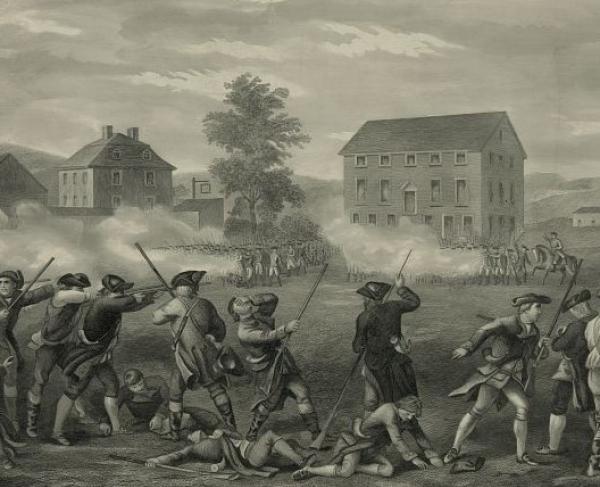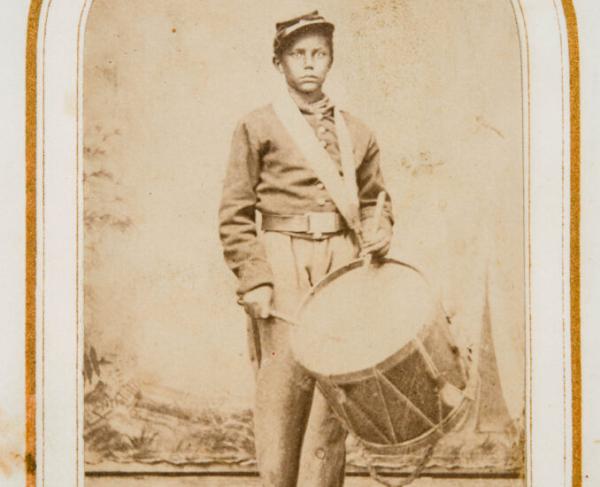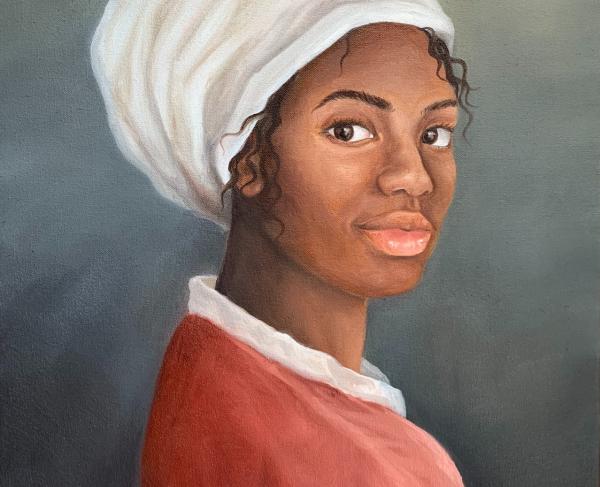Winsor Fry

Born enslaved probably in the 1750s, Winsor Fry had been mentioned in an enslaver’s will in 1773 but somehow gained his manumission and freedom by 1775. Fry may have been an African American or had a mixed race ancestry with white, African, or Indian heritage; there are several descriptions of him from his lifetime using different racial terms.
Just months after the first shots at Lexington and Concord, formerly enslaved Winsor Fry marched to Boston with fellow soldiers of Rhode Island's Army of Observation. Likely not yet 20 years old when he enlisted in 1775, Fry began his life as a free man, a private in the patriot forces, and fought for the freedom of his country through war's end in 1783.
He fought at many of the pivotal battles of the Revolutionary War, including Long Island, Harlem Heights, and White Plains in 1776 and the Second Battle of Trenton and Princeton in 1777. Fry endured the winter at Valley Forge with the Continental Army, then fought at Monmouth and in Rhode Island in 1778.
While near home in Rhode Island, Fry married Lucy Davis, and the couple had their first of several children around 1780. Also in 1780, Fry faced court-martial, pleading guilty to stealing from the commissary’s food supply. He was sentenced to be executed, but escaped. When recaptured, General Washington suggested to Fry’s colonel that the sentence could be reduced or Fry completely pardoned. Colonel Christopher Greene took the merciful option, spared Fry’s life, and allowed him to continue his military service. Fry missed the Siege of Yorktown due to illness, but he remained a soldier until the end of the war in 1783.
After the war, he returned to Rhode Island and worked wherever he could find employment. By 1818, Fry applied for a soldier’s pension and was supported by men from his local community. Two years later, he applied for pension again, and finally received $8 per month. Winsor Fry died on February 1, 1823; his final resting place in East Greenwich, Rhode Island, was recently discovered by his descendants who raised a monument in his honor.


